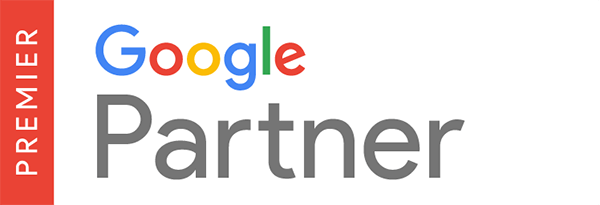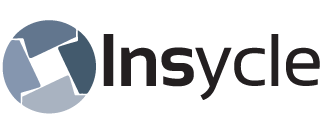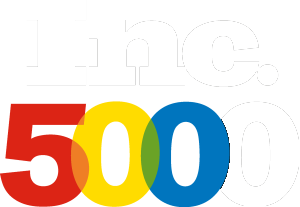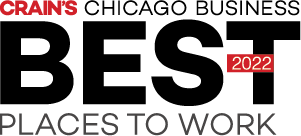[vc_row type=”in_container” full_screen_row_position=”middle” column_margin=”default” column_direction=”default” column_direction_tablet=”default” column_direction_phone=”default” scene_position=”center” text_color=”dark” text_align=”left” row_border_radius=”none” row_border_radius_applies=”bg” overlay_strength=”0.3″ gradient_direction=”left_to_right” shape_divider_position=”bottom” bg_image_animation=”none”][vc_column column_padding=”no-extra-padding” column_padding_tablet=”inherit” column_padding_phone=”inherit” column_padding_position=”all” background_color_opacity=”1″ background_hover_color_opacity=”1″ column_shadow=”none” column_border_radius=”none” column_link_target=”_self” gradient_direction=”left_to_right” overlay_strength=”0.3″ width=”1/1″ tablet_width_inherit=”default” tablet_text_alignment=”default” phone_text_alignment=”default” column_border_width=”none” column_border_style=”solid” bg_image_animation=”none”][vc_column_text]For some organizations, assumed hires are full-time C-suite positions including Chief Financial Officer (CFO), Chief Marketing Officer (CMO), Chief Technology Officer (CTO), and Chief Information Officer (CIO). However, whatever the circumstance may be, there has been a turn of the tides in the C-suite staff.
A startup viewpoint might be more effective — and not just cost-effective but also from a perspective standpoint. That viewpoint would be to bring the track record that traditional leadership team members exude but without the financial investment that can be needed in sustaining often lofty salaries.
As fractional CMOs are becoming normalized, delve into why hiring an agency for outsourced and short-term CMO needs may produce next-level results for your marketing goals, sales development objectives, and internal finances allocation.
 Fractional Chief Marketing Officer versus Full-Time CMO
Fractional Chief Marketing Officer versus Full-Time CMO
Why should your organization hire marketing talent in the form of a fractional Chief Marketing Officer through a marketing agency instead of taking that position in-house with a full-time CMO?
Although the highlights are for finances and strategy, there are a variety of other factors to take into consideration when deciding between hiring a fractional CMO and having a salaried full-time in-house CMO on staff.
There are certainly data points that speak to the value of employing an FCMO, albeit there are a handful of intangibles. The C-suite can be bolstered by a company employing a full-time in-house CMO due to the strategic and relational closeness that can be found within the executive-level leadership team and a company’s clients.
Also, a fractional CMO can often bring a new perspective which still aligns with a marketing department’s goals and objectives. However, there are a few factors to ponder prior to hiring a CMO, whether full-time or outsourced.
Finances and Cost
One factor that is often the most criticized when hiring a chief marketing officer is the financial health of an organization. For better or worse, hiring for a position on the C-level can be expensive due to the likelihood of the professional expertise and years of experience (if not, usually, decades!) that a marketing leader brings to the table.
Additionally, by hiring a marketing executive to take on the breadth of what an organization’s marketing initiatives look like, a company must consider the time — and therefore, money — spent on onboarding, training, and, quite possibly, new tools or platforms to develop marketing initiatives, processes, and strategies. Ultimately, a CMO can offer your organization a more prudent way to distribute internal funds.
In comparison to a full-time CMO that is on staff and receiving (at the very least) a median annual salary of $350,000, with a fractional CMO costing anywhere between $200 and $400 per hour — and not working more than a 20-hour part time employee — the cost savings look favorable to having a fractional chief marketing officer.
While taking into account the expenses of deploying projects for digital marketing plan items like content creation, SEO tasks, paid search and social strategies, and email marketing services, a fractional CMO agency can pay attention to those digital marketing channels and tackle said projects, while also providing the marketing leadership strategy that is desired.
Although an advantage to employing a chief marketing officer is that it allows an organization to hone in on marketing tone and brand voice, as well as taking on larger projects such as employment branding, the cost of having the CMO on staff can strangle the strategy from moving forward and digital marketing tactics to be deployed.
The weight of employing a fractional CMO agency, then, is taken into consideration even with an average cost of content creation (usually no more than $100 per hour), paid media campaigns (a monthly budget can be upwards of $5,000 with more fluid campaign prices with the full allotted amount, and SEO optimizations (typically ranging $100-$150 per hour) in place. With a monthly amount for all the digital marketing channels used, plus hiring a fractional CMO agency, the overall marketing department should lower the ceiling of the organization’s costs.
Having a fractional CMO agency come on board that can execute on your digital marketing efforts, tactics, and campaigns, and honing an organization’s marketing strategy, while also costing a fraction of a full-time c-suite marketing executive, is an ever-increasingly attractive organizational solution.
Digital Marketing Leadership Strategy
By hiring a fractional CMO through an agency, organizations have access to a wealth of strategic minds focusing on the needs and wants of a business. Ranging from elevating the marketing team through the utilization of a more strategic content marketing plan with digital optimizations at the forefront to implementing automation for team effectiveness and efficiency, the digital marketing leadership presented through a well-built out strategy from an agency for fractional CMO services is paramount to an organization’s success.
For the digital marketing leadership strategy to come to fruition, the fractional CMO understands all aspects of the organization, not just the marketing department channels. Whether it’s solely the CMO or other C-suite executives, having an understanding of other business needs is a benefit for organizations.
A fractional CMO, who has proven knowledge of marketing methodology due to having executive-level leadership, can use the marketing processes seen, learned from, and built upon from previous outsourced CMO experiences to the advantage of your own marketing strategy.
 Hiring Advantages of an Agency for Part-Time FCMO Services
Hiring Advantages of an Agency for Part-Time FCMO Services
Although hiring a full-time chief marketing officer can be a boon for business needs, bringing in a digital marketing agency in the form of an outsourced CMO as a proxy for an experienced full-time C-suite marketing professional often can highlight areas for business growth in a more tactful way.
Not only is the perspective of an outsourced Chief Marketing Officer different than that of a full-time, salaried employee, but using fractional CMO services means there is a brain trust of experts from which the CMO can tap into a wealth of knowledge in an assortment of marketing channels.
Additionally, the methodology that a fractional CMO deploys is an advantage for improving marketing efforts and marketing tactics for a business. Employing a fractional CMO through an agency allows for the CMO to strengthen the amalgamation of methods through which they work best and see the most vital results come to pass for an organization.
Whether a fractional CMO relies heavily on inbound marketing methodologies or a combination of methodologies that often see go-to-market strategies intertwined, the benefits of a varied methodological standpoint from an outsourced CMO can be crucial for a business that does not depend on a full-time CMO.
How Logical Can Transform your Digital Marketing Strategy through using an FCMO
If you’re looking for assistance with business needs and seek a partnership with a marketing agency to further develop and grow your marketing processes, consider hiring a fractional CMO through Logical Media Group.
Whether you’re seeking fractional CMO services to achieve higher organic SEO metrics, reaching a higher ROAS for your paid media channel, or simply ensuring your overall marketing strategy aligns with your sales development goals and business objectives, Logical Media Group has diligently worked on and subsequently accomplished navigating marketing and business development strategies.
Whether your organization is looking for a different perspective on your marketing team’s long term vision for SEO, paid search and social, organic social media, and other marketing campaigns through a mixture of channels, or simply need the guidance of an experienced marketing professional, Logical can help.
We have the right team members your organization needs to fulfill and exceed the KPIs your company’s marketing team has established. Our team will also maintain a keen eye on using current and up-and-coming metrics to get the most out of the marketing goals that have been put in place.[/vc_column_text][/vc_column][/vc_row]







